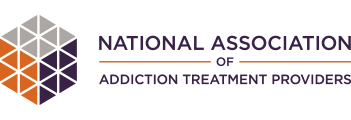The Refuge offers holistic and evidence-based residential treatment in a serene, secluded healing environment for mass shooting trauma recovery, moving beyond the symptoms to resolve the underlying issues.
About Mass Shooting Trauma
Tragically, the occurrence of mass shootings has steadily increased in recent years. With mass shootings occurring seemingly everywhere, from schools, workplaces, and churches to movie theaters and concerts, the number of lives that have been negatively impacted is countless. Whether you have personally experienced this type of tragedy, or you have a loved one who has, the emotional aftereffects can be life-altering.
Mass shootings are senseless tragedies that have forever changed the narrative of life in the United States. Gun violence has taken the lives of innocent students, teachers, employees, community members, and first responders, and this loss is felt deeply in communities across our nation.
While political pundits, lobbyists, and mental health professionals continue to argue over the cause of these horrific events, one thing remains true. These acts of violence leave deep scars of trauma on many individuals. If you or someone close to you has experienced trauma related to a mass shooting, know that there is support available at The Refuge.
Signs and Symptoms of Mass Shooting Trauma
When a person survives a mass shooting, they will never experience life in the same way. They may begin to fear leaving their homes, scared of what they will encounter. They may be apprehensive about returning to the place where the shooting occurred, causing significant challenges for those who don’t have a choice except to return to their classrooms or places of employment. These environments have become marked with memories of terrifying events, and they aren’t easily erased.
Survivors of mass shootings will face acute stress in the aftermath, and they need adequate support. The following signs and symptoms may indicate that a person requires professional help to overcome the effects of their traumatic experience:
- Sleep and/or appetite disturbances
- Nightmares about the shooting
- Inability to attend work, school, or other venues
- Avoiding people, places, or things that trigger memories of the events
- Social withdrawal and isolation
- Flashbacks or distressing recurring memories of the events
- Beginning to use substances as a means of coping with distress
Signs and Symptoms of Coach Abuse Trauma
As is the case with other types of trauma, the full effect of coach abuse may not become apparent until long after the incident or incidents occurred.
A person who is struggling with the effects of trauma in the aftermath of coach abuse may experience the following symptoms:
- Disrupted sleeping patterns (including both insomnia and hypersomnia)
- Changes in appetite, and resultant impact on weight
- Vivid disturbing nightmares
- Recurring unwanted memories of the abuse (commonly known as “flashbacks”)
- Drastic mood swings
- Problems with emotional regulation
- Avoiding certain people, places, or other reminders of the abuse
- Anxiety and depression
- Abusing alcohol or other drugs
- Social withdrawal and isolation
Treatment for Mass Shooting Trauma at The Refuge
Our rehab’s clinicians are all trauma-certified and experienced in numerous types of trauma-related therapeutic approaches. We understand how difficult going through life can be after experiencing a mass shooting, and we are aware of the incredible suffering you may feel at this time. Our approach is one of compassionate caring; we will never minimize, invalidate, or judge you for the way that you process your experiences. Hope and support are two critical facets of our treatment methods, and when you come to our nationally recognized PTSD treatment center, you become part of our family.
At The Refuge, you’ll undergo a series of evaluations to allow us to best understand the ways in which mass shooting trauma is impacting your life. Our medical evaluation will indicate whether you’re self-medicating with drugs or alcohol, and whether you’re struggling with any medical complications associated with PTSD or the effects of trauma. In addition, our psychiatric evaluation will let us determine the severity of your symptoms and identify the presence of any co-occurring disorders. From there, our treatment team will create a plan of care that meets all your needs – mind, body, and soul. We know that you’re more than a constellation of symptoms, and we’re ready to help you on your journey towards recovery.
Treatment approaches for trauma in the aftermath of a mass shooting may include:
Interpersonal therapy (IPT): Focuses on social relationships and re-establishing normal roles in life, such as re-engaging with peers, participating in social activities, and functioning normally in your previously established roles.
Cognitive behavioral therapy (CBT): Helps you to restructure maladaptive thoughts related to your trauma and replace them with accurate thoughts.
Dialectical behavior therapy (DBT): Focuses on validating your experiences, stabilizing your emotions, and teaching you how to cope with stress.
Intensive family therapy and Family Week: Families and loved ones are a crucial source of support as you heal from the effects of trauma. Family members may also need to deal with their own issues related to your experience. The ability to share these emotions at our residential treatment center with those you are closest to is a powerful technique for support.
We are a holistic rehab center, and we believe in using numerous methods of evidence-based treatments, including:
- Creative expression
- Dramatic experiencing
- Art therapy
- Sharing
- Journaling
Continuing Care
As your time with us draws to a close, we will work closely with you to create a plan of care that meets your continuing therapeutic needs. Many people continue their treatment in a structured outpatient setting and opt for a partial hospitalization program (PHP). Some people feel that they have made enough progress to continue healing on a traditional outpatient basis. Whatever your needs may be, we will set you up with outpatient referrals and can even schedule your first appointment with a therapist. We’ll also provide referrals to local community resources to help you continue your healing.








